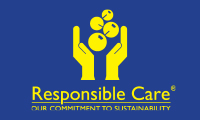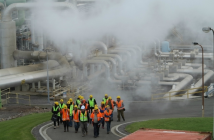A study of psychosocial hazards in New Zealand construction businesses has revealed that workers are being abused and threatened, while health and safety leaders face huge challenges

The study collected over 30,000 data points from construction businesses around the country and was led by Dr Steve Cantwell of safety software company SaferMe. The work was co-funded by ACC via its Workplace Injury Prevention innovation programme, and supported by CHASNZ (Construction Health & Safety NZ) and Civil Contractors NZ.
Among the set of six key findings published:
– Verbal abuse and physical threats are common
– One in four workers avoid reporting injuries
– Health & Safety leaders suffer low levels of support, more workplace bullying and poor role clarity
SaferMe’s report follows on from the publication of the Business Leaders’ Health and Safety Forum’s State of a Thriving Nation report, which showed New Zealand’s workplace death rate is double Australia’s, with deaths and injuries costing the country $4.4 billion per year.
“Psychosocial hazards increase the likelihood of accidents and injuries; as well as making workers more likely to be absent or to leave a business. It’s certainly contributing to our abysmal statistics as a nation, and more needs to be done to understand and address psychosocial hazards,” SaferMe founder and CEO Clint van Marrewijk says.
“Our team led by Dr Cantwell has taken a very thorough process to examine these challenges in construction and other sectors, and we’re now helping businesses to measure these problems and fix them, “ van Marrewijk says.
CHASNZ Chief Executive Officer Chris Alderson says the study could help shape a better future for construction work.
“Robust evidence-based studies such as that undertaken by Dr Cantwell and SaferMe provide the construction industry with valuable insight into how to create a better future for our construction workforce. There are instant and implementable takeaways for construction businesses around the value of fostering collaborative and supportive workplaces as well as reducing known psychosocial risk factors.”
SaferMe is now focused on helping further industries and individual businesses to measure and address psychosocial hazards in their workplace with its Safety Snap tool, developed with co-funding from ACC.
Safety Snap is an evidence-based tool that helps a business understand the psychosocial challenges affecting staff on their worksites in less than one minute per week.
More information on Safety Snap is available at www.safer.me/features/safety-snap/
Key Findings document is able to be downloaded from this link.







